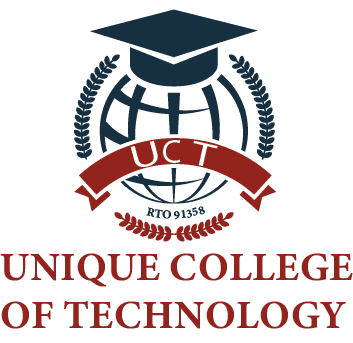
Are you sure you are going to pursue recognition of prior learning, but still confused about your next step? Then this article can be a big read for you man. Give it a read.
Obviously, different sorts of evidence will be required for each certification. Because a certificate in business management does not require the same level of evidence as a certificate in plumbing, it’s critical that you first master the units in your qualification.
Having said that, no matter what business or position you’re in, there are still lots of common elements to start collecting and thinking about.
Types of Evidence used for Recognition of Prior Learning
While there is no ‘hierarchy’ of evidence you should employ, assessors will look for three different categories of evidence. Most candidates will combine all three to create a portfolio of evidence that meets the required standards.
- Direct Evidence:
When an assessor can see your skills and knowledge in real time while observing your work in person or via video, this is known as direct evidence.
For example,
- In-person observation by an assessor
- An in-person examination of skills and knowledge
- Videos of you working on a project or finishing a task
- Indirect Evidence:
Any evidence that an assessor can evaluate or examine to ascertain your expertise is referred to as indirect evidence.
For example,
- is a completed item, such as:
- Documents
- Communication fragments
- Visits to the workplace (particularly for trades)
- Assignments to be written
- Tests
- A collection of work
- A video of the final product
- Work-related photos
- Supplementary Evidence:
Supplementary evidence is any evidence that supports your capacity but isn’t a sample of your work.
For example,
- References
- Job description
- Client or employer testimonials Work diaries
- Evidence of previous education and training
How to Create an Evidence Portfolio
A critical point to remember is that throughout your evidence portfolio, you should focus on quality rather than quantity. An assessor isn’t looking for you to repeatedly demonstrate your ability to perform a task. Instead, they require sufficient proof to ensure that you possess the necessary skills and knowledge to complete the assessment modules for a certificate.
When evaluating your evidence, an RTO assessor will look to see if your portfolio of evidence meets the following criteria:
- Sufficient: Do you have enough information for an assessor to make an informed decision?
- Authentic: Is the proof really yours, and is it reliable?
- Reliable: Is the evidence strong enough to stand up to scrutiny?
- Current: Do you have any recent evidence of your work and learning (within the last three years is a good indication) that will appropriately represent your current skill and knowledge level?
How can I get a nationally recognized qualification using RPL?
A registered training provider, such as Page Institute, can offer you a nationally recognized qualification via RPL. Through our streamlined procedure, we help you turn your on-the-job, formal, and informal learning earned over your career into a nationally recognized qualification. We’ve helped over 900 people so far using the four simple methods outlined below:
- The first stage of the evaluation: As a participant, you tell us about the talents you’ve acquired through formal and informal learning throughout your career. We spend a lot of time at this level talking about details that you would normally include in your resume. Once we have all of the details concerning your work history, we will let you know if you are eligible for RPL.
- Evidence gathering process: We work with you to collect as much proof as possible during this step, including videos of tasks completed, images, reference letters, work samples, a current résumé, certificates, transcripts, international qualifications, and any other learning experiences. This is your moment to show off your skills. The old and renowned slogan, – the more the merrier!”, – is something we always remind our participants of. The following steps are frequently included in the evidence collection process:
- Interviewing the participant and administering an oral test to them. For example, having a member of the hospitality staff describe their organization’s food hygiene policy might be helpful.
- Observing the participant performing specific job duties in their workplace (or simulated environment). Observing a barista create an espresso coffee and apply various milk texturing procedures, for example.
- Requiring the participant to complete written exams and assessments A hospitality manager, for example, could compile a staff roster and submit a copy.
- Documents and testimonies are taken into consideration. For example, a duty manager may use industry-recognized software to submit completion documents from a non-accredited course, such as their internal training platform.
- I’m going over my portfolio. For example, a chef may present a portfolio of finished menus that showcase the utilization of a number of key cuisine components.
- Compliance Check: The compliance team will regulate your portfolio after our assessors have worked with you to construct it to ensure that it fulfils national compliance standards.
- Get Qualified: We issue your Nationally Recognised Qualification once our compliance team has approved your portfolio. Do yourself a favour and congratulate yourself on the back; you’re on your way to getting that promotion!
Benefits of RPL:
While anyone who has taken an RPL assessment will tell you that there are several advantages, we believe the following are the top three:
- formal acknowledgment of industry experience and background.
- To be accepted into a qualifying qualification, you must first.
- Course completion times are shorter.
As a foreign student, your international qualifications or experience may not be recognized or accepted by your Australian employer. In these situations, RPL is the most convenient option to get an Australian-recognized credential. RPL is immensely beneficial to those who have the necessary experience, knowledge, and skills to work in a profession but lack a formal educational certificate.



